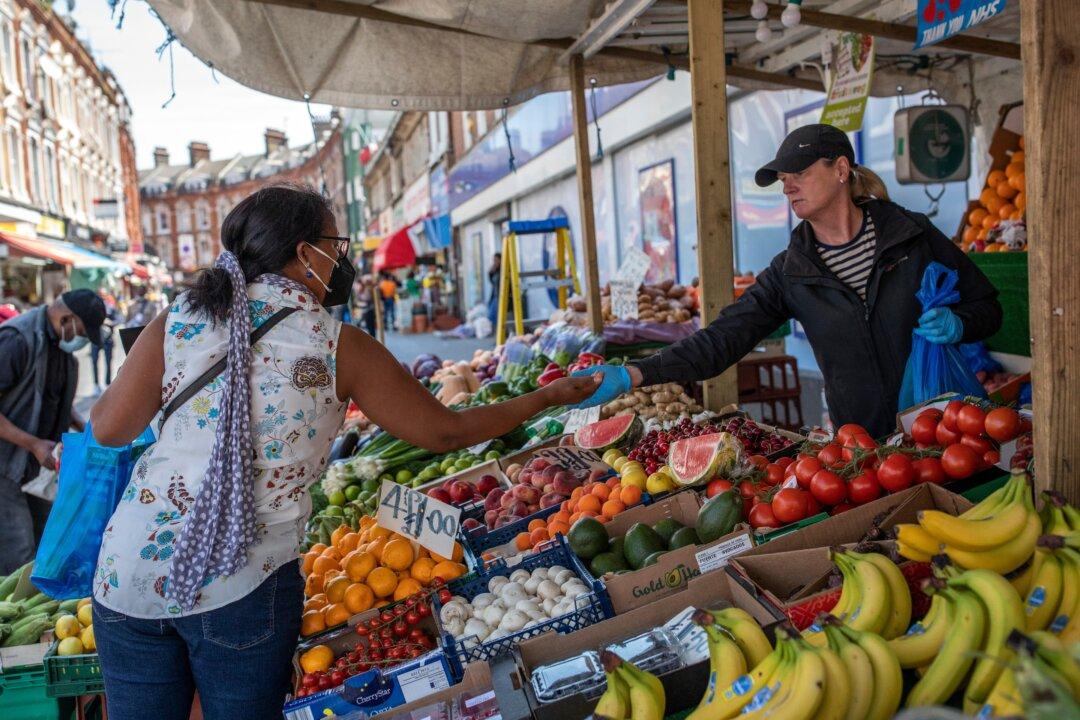There is no need for consumers to stockpile food in preparation for a possible “no-deal” Brexit on Dec. 31 but supplies of fresh fruits and vegetables will bear the brunt of disruptions it may cause, a British retailer’s group has warned.
“While no amount of preparation by retailers can entirely prevent disruption, there is no need for the public to buy more food than usual, as the main impact will be on imported fresh produce, such as fresh fruits and vegetables, which cannot be stored for long periods by either retailers or consumers,” Helen Dickinson, chief executive of the British Retail Consortium (BRC) said on Sunday.





